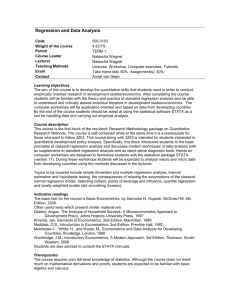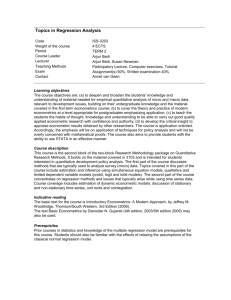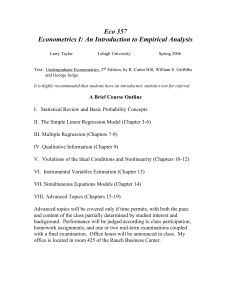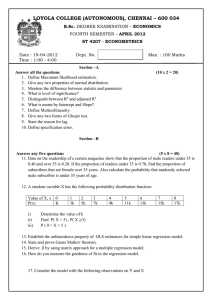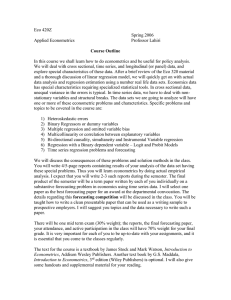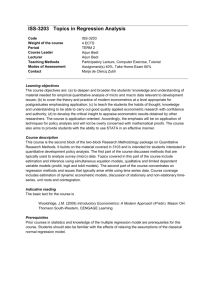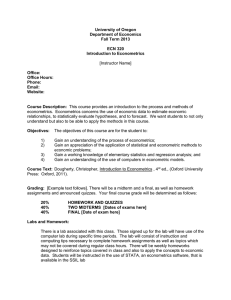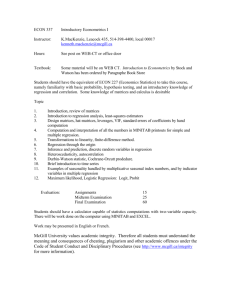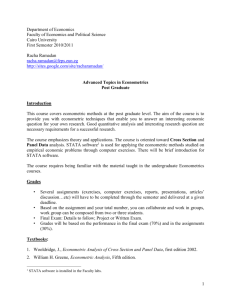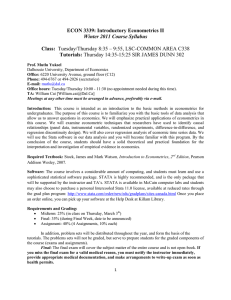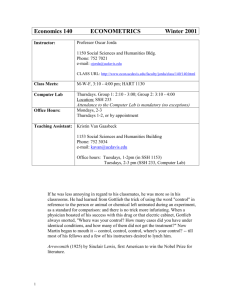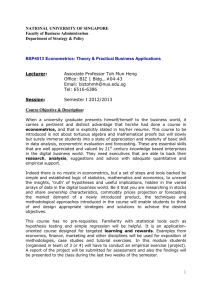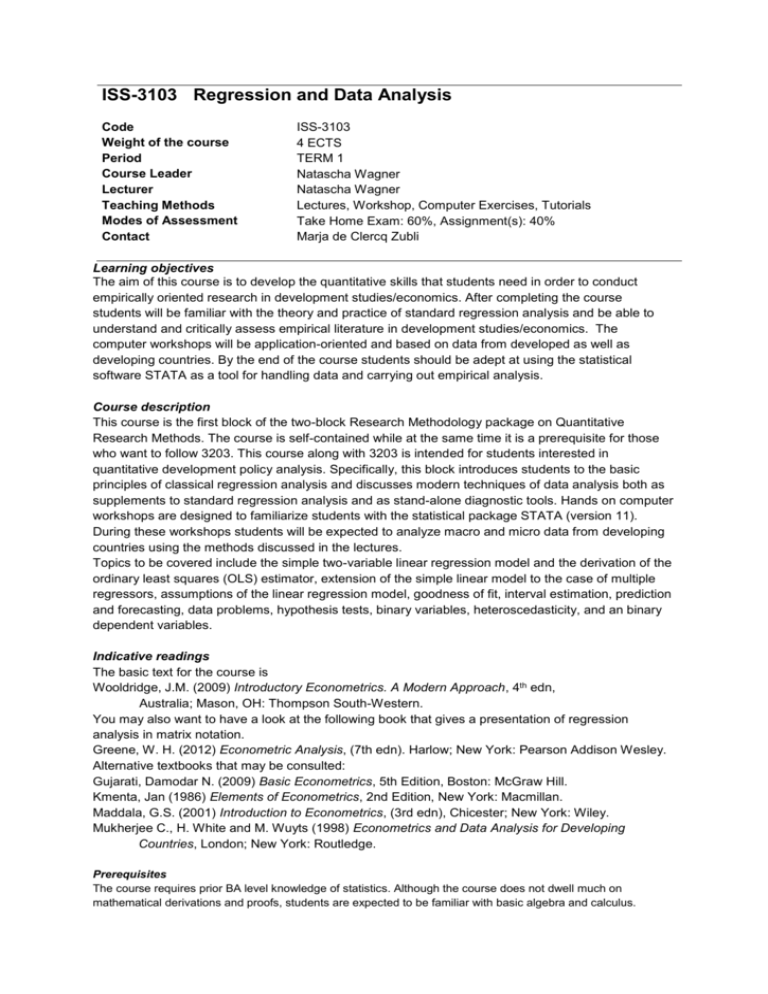
ISS-3103 Regression and Data Analysis
Code
Weight of the course
Period
Course Leader
Lecturer
Teaching Methods
Modes of Assessment
Contact
ISS-3103
4 ECTS
TERM 1
Natascha Wagner
Natascha Wagner
Lectures, Workshop, Computer Exercises, Tutorials
Take Home Exam: 60%, Assignment(s): 40%
Marja de Clercq Zubli
Learning objectives
The aim of this course is to develop the quantitative skills that students need in order to conduct
empirically oriented research in development studies/economics. After completing the course
students will be familiar with the theory and practice of standard regression analysis and be able to
understand and critically assess empirical literature in development studies/economics. The
computer workshops will be application-oriented and based on data from developed as well as
developing countries. By the end of the course students should be adept at using the statistical
software STATA as a tool for handling data and carrying out empirical analysis.
Course description
This course is the first block of the two-block Research Methodology package on Quantitative
Research Methods. The course is self-contained while at the same time it is a prerequisite for those
who want to follow 3203. This course along with 3203 is intended for students interested in
quantitative development policy analysis. Specifically, this block introduces students to the basic
principles of classical regression analysis and discusses modern techniques of data analysis both as
supplements to standard regression analysis and as stand-alone diagnostic tools. Hands on computer
workshops are designed to familiarize students with the statistical package STATA (version 11).
During these workshops students will be expected to analyze macro and micro data from developing
countries using the methods discussed in the lectures.
Topics to be covered include the simple two-variable linear regression model and the derivation of the
ordinary least squares (OLS) estimator, extension of the simple linear model to the case of multiple
regressors, assumptions of the linear regression model, goodness of fit, interval estimation, prediction
and forecasting, data problems, hypothesis tests, binary variables, heteroscedasticity, and an binary
dependent variables.
Indicative readings
The basic text for the course is
Wooldridge, J.M. (2009) Introductory Econometrics. A Modern Approach, 4th edn,
Australia; Mason, OH: Thompson South-Western.
You may also want to have a look at the following book that gives a presentation of regression
analysis in matrix notation.
Greene, W. H. (2012) Econometric Analysis, (7th edn). Harlow; New York: Pearson Addison Wesley.
Alternative textbooks that may be consulted:
Gujarati, Damodar N. (2009) Basic Econometrics, 5th Edition, Boston: McGraw Hill.
Kmenta, Jan (1986) Elements of Econometrics, 2nd Edition, New York: Macmillan.
Maddala, G.S. (2001) Introduction to Econometrics, (3rd edn), Chicester; New York: Wiley.
Mukherjee C., H. White and M. Wuyts (1998) Econometrics and Data Analysis for Developing
Countries, London; New York: Routledge.
Prerequisites
The course requires prior BA level knowledge of statistics. Although the course does not dwell much on
mathematical derivations and proofs, students are expected to be familiar with basic algebra and calculus.

